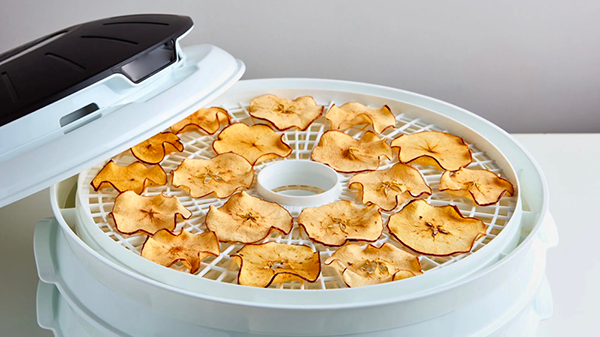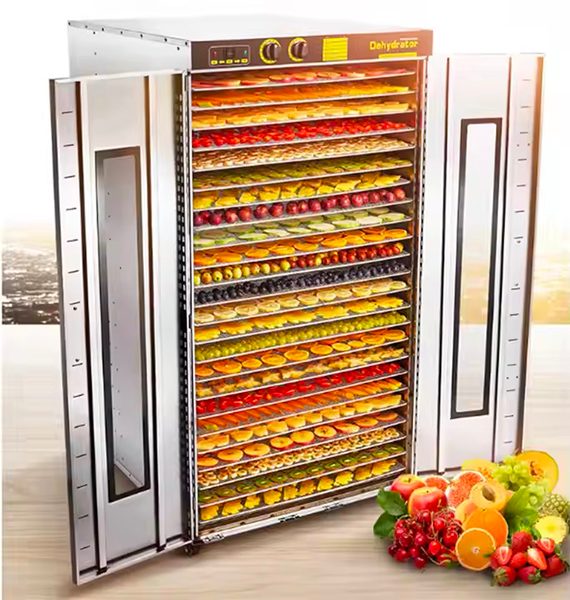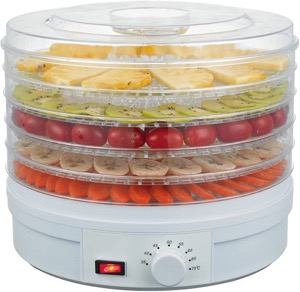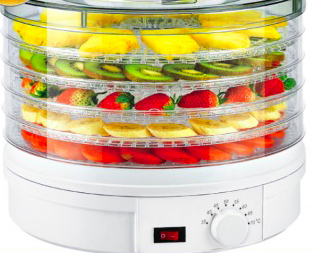
Content Menu
● Introduction
● Understanding Heat Pump Dryers
>> What is a Heat Pump Dryer?
>> How Does It Work?
● Benefits of Heat Pump Dryers
>> Energy Efficiency
>> Versatile Installation
>> Gentle on Fabrics
>> Improved Moisture Control
>> Reduced Carbon Footprint
● Applications in Food Drying
>> Food Dehydration Process
>> Benefits for Food Manufacturers
● Innovations in Heat Pump Technology
>> Advanced Features
>> Environmental Impact
● Future Trends in Heat Pump Dryers
● Conclusion
● Frequently Asked Questions
>> 1. Do heat pump dryers require any special installation?
>> 2. How much energy do heat pump dryers save compared to traditional models?
>> 3. Can I use a heat pump dryer for food dehydration?
>> 4. Are there any downsides to using a heat pump dryer?
>> 5. How do I maintain my heat pump dryer?
Introduction
Heat pump dryers have revolutionized the way we think about drying clothes and food products. Unlike traditional dryers that require external ventilation to expel hot, moist air, heat pump dryers utilize a closed-loop system that recycles air within the unit. This innovative technology not only enhances energy efficiency but also allows for versatile installation options, making them ideal for various settings, including homes and food processing facilities. In this article, we will delve into how heat pump dryers operate without the need for external ventilation, focusing specifically on their application in food drying.

Understanding Heat Pump Dryers
What is a Heat Pump Dryer?
A heat pump dryer is an appliance that uses a heat pump system to dry clothes or food by extracting moisture from the items being dried. The process involves circulating warm air through the drum where the items are placed. The moisture-laden air is then condensed back into water and either collected in a reservoir or drained away, allowing the dryer to reuse the hot air repeatedly.
How Does It Work?
The operation of a heat pump dryer can be broken down into several key steps:
1. Air Intake: The dryer draws in ambient air from its surroundings.
2. Heating: This air is passed through a heat exchanger where it is heated using a refrigerant.
3. Drying Cycle: The warm air enters the drum, absorbing moisture from the clothes or food items.
4. Moisture Extraction: The moist air is cycled back through the heat exchanger, where it cools down and releases moisture as water.
5. Recycling Air: The now cool and dry air is reheated and sent back into the drum to continue the drying process.
This closed-loop system eliminates the need for external venting, allowing for more flexible installation options.
Benefits of Heat Pump Dryers
Energy Efficiency
One of the most significant advantages of heat pump dryers is their energy efficiency. They consume up to 50% less energy compared to traditional vented dryers. By recycling hot air, these dryers minimize energy loss and reduce utility bills for users. This efficiency not only benefits consumers financially but also contributes to environmental sustainability by lowering overall energy consumption.
Versatile Installation
Since heat pump dryers do not require external venting, they can be installed in various locations without needing modifications to existing ventilation systems. This feature is particularly beneficial for apartments or homes without access to exterior walls. Users can place these dryers in laundry rooms, basements, or even closets without worrying about venting issues.
Gentle on Fabrics
Heat pump dryers operate at lower temperatures compared to conventional dryers. This gentle drying process helps preserve the integrity of fabrics, reducing wear and tear while preventing shrinkage and fading. For delicate items such as silk or wool, heat pump dryers provide an ideal solution that maintains quality over time.
Improved Moisture Control
By condensing moisture within the unit instead of expelling it outdoors, heat pump dryers help maintain better humidity levels in the surrounding area. This reduces the risk of mold growth and damage to walls and ceilings that can occur with vented dryers. Furthermore, maintaining optimal humidity levels can enhance indoor air quality, making it healthier for inhabitants.
Reduced Carbon Footprint
Using heat pump technology contributes significantly to reducing carbon emissions associated with laundry and food drying processes. As consumers become more environmentally conscious, opting for energy-efficient appliances like heat pump dryers aligns with global sustainability goals.

Applications in Food Drying
Food Dehydration Process
Heat pump dryers are increasingly used in food processing for dehydration purposes. The ability to control temperature and humidity levels makes them ideal for preserving fruits, vegetables, meats, and herbs without compromising quality.
1. Temperature Control: Heat pump dryers can maintain specific temperatures that are essential for drying various types of food effectively. For instance, fruits may require lower temperatures to retain their natural sugars and flavors.
2. Humidity Management: By removing moisture efficiently, these dryers help prevent spoilage and extend shelf life. The controlled environment reduces the risk of microbial growth that often occurs with high humidity levels during traditional drying processes.
3. Nutrient Preservation: The low-temperature drying process helps retain vitamins and minerals in food products that might be lost in traditional drying methods. This aspect is particularly important for health-conscious consumers looking to maximize nutritional value.
4. Flavor Retention: Unlike conventional drying methods that may alter flavors due to high temperatures, heat pump dryers preserve the natural taste of foods, making them more appealing to consumers.
5. Versatility in Food Types: From herbs like basil and thyme to fruits like apples and pears, heat pump dryers can accommodate a wide variety of food types, making them suitable for diverse culinary applications.
Benefits for Food Manufacturers
For food manufacturers looking to implement heat pump technology in their operations, several benefits can be highlighted:
- Cost Savings: Reduced energy consumption translates into lower operational costs. Manufacturers can allocate these savings towards other areas of production or reinvest them into improving product quality.
- Quality Assurance: The gentle drying process ensures that food maintains its flavor, color, and nutritional value. This quality assurance can lead to higher customer satisfaction and repeat business.
- Flexibility: Manufacturers can install heat pump dryers in spaces that were previously unsuitable for traditional drying equipment due to venting requirements or space constraints.
- Scalability: As demand increases, manufacturers can easily scale up operations by adding more heat pump dryers without significant infrastructure changes.
- Enhanced Safety Standards: With better moisture control during drying processes, manufacturers can meet stringent food safety regulations more effectively, reducing risks associated with spoilage or contamination.
Innovations in Heat Pump Technology
Advanced Features
Modern heat pump dryers come equipped with advanced features that enhance usability and efficiency:
- Smart Technology Integration: Many models now include smart technology that allows users to control settings via mobile apps or integrate with home automation systems. This feature enables users to monitor drying cycles remotely and receive notifications when cycles are complete.
- Self-Cleaning Filters: Some heat pump dryers have self-cleaning filters that reduce maintenance efforts by automatically cleaning lint buildup during operation.
- Multiple Drying Programs: Advanced models offer various drying programs tailored for different fabric types or food products, ensuring optimal results every time.
- Energy Monitoring Systems: Some models include built-in energy monitoring systems that provide users with insights into their energy consumption patterns, helping them make informed decisions about usage habits.
Environmental Impact
The shift towards using heat pump technology aligns with global efforts to reduce carbon footprints and promote sustainable practices in both residential and commercial sectors. By choosing energy-efficient appliances like heat pump dryers, consumers contribute positively towards environmental conservation while enjoying cost savings on their utility bills.
Future Trends in Heat Pump Dryers
As technology continues to advance, we can expect several trends influencing the future development of heat pump dryers:
1. Increased Automation: Future models will likely feature enhanced automation capabilities that allow users to set preferences based on fabric type or desired dryness level automatically.
2. Integration with Renewable Energy Sources: As renewable energy becomes more prevalent, manufacturers may design heat pump dryers compatible with solar panels or wind turbines to further reduce energy costs and environmental impact.
3. Enhanced User Interfaces: User-friendly interfaces will become standard as manufacturers focus on improving customer experience through intuitive controls and easy-to-understand displays.
4. Sustainability Initiatives: More brands will prioritize sustainable materials in manufacturing processes while also ensuring recyclability at the end of a product's life cycle.
5. Customization Options: Consumers may have opportunities to customize features based on personal preferences or specific needs related to fabric care or food preservation techniques.
Conclusion
Heat pump dryers represent a significant advancement in drying technology by offering an efficient, versatile, and environmentally friendly solution for both laundry and food processing applications. Their ability to operate without requiring external ventilation opens up new possibilities for installation while providing substantial energy savings and improved product quality. As consumers become more aware of sustainability and efficiency, heat pump dryers are likely to become increasingly popular in both residential and commercial settings.
In summary, whether you are a homeowner looking for an efficient laundry solution or a food manufacturer seeking advanced dehydration methods, heat pump dryers offer numerous benefits that cater to diverse needs while promoting sustainability.

Frequently Asked Questions
1. Do heat pump dryers require any special installation?
Heat pump dryers do not require special installation as they do not need external venting. However, ensuring proper airflow around the unit is essential for optimal performance.
2. How much energy do heat pump dryers save compared to traditional models?
Heat pump dryers can save up to 50% more energy than traditional vented dryers due to their efficient recycling of hot air during operation.
3. Can I use a heat pump dryer for food dehydration?
Yes, heat pump dryers are excellent for food dehydration as they provide precise control over temperature and humidity levels necessary for effective drying.
4. Are there any downsides to using a heat pump dryer?
While heat pump dryers are generally more efficient, they may have longer drying times compared to conventional models due to their lower operating temperatures.
5. How do I maintain my heat pump dryer?
Regular maintenance includes cleaning the lint filter after each use and ensuring that any water reservoirs are emptied regularly to prevent overflow or mold growth.












